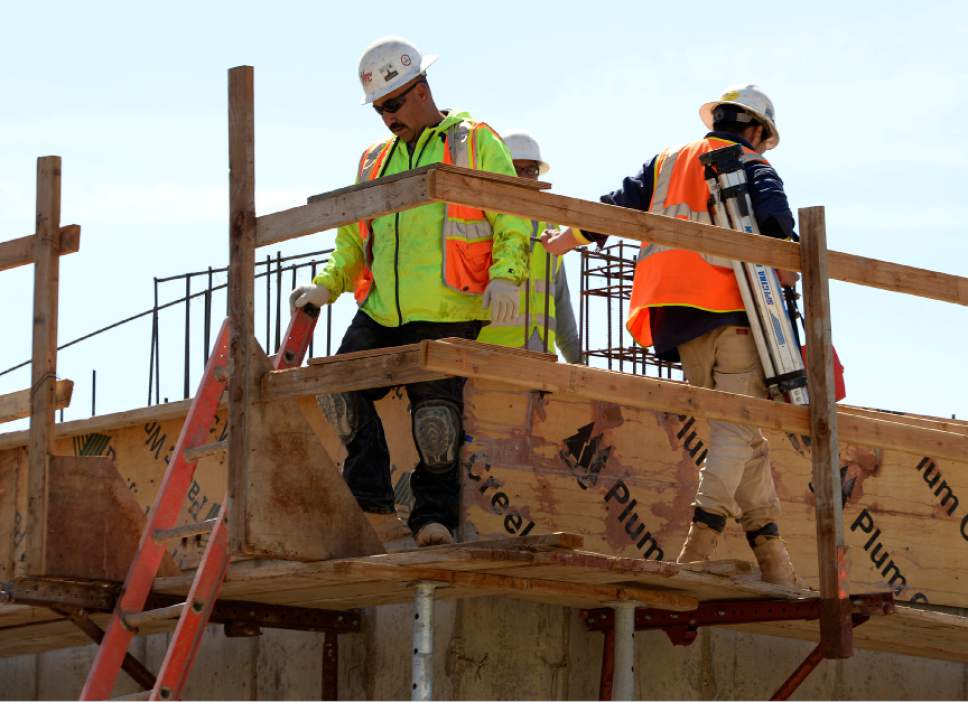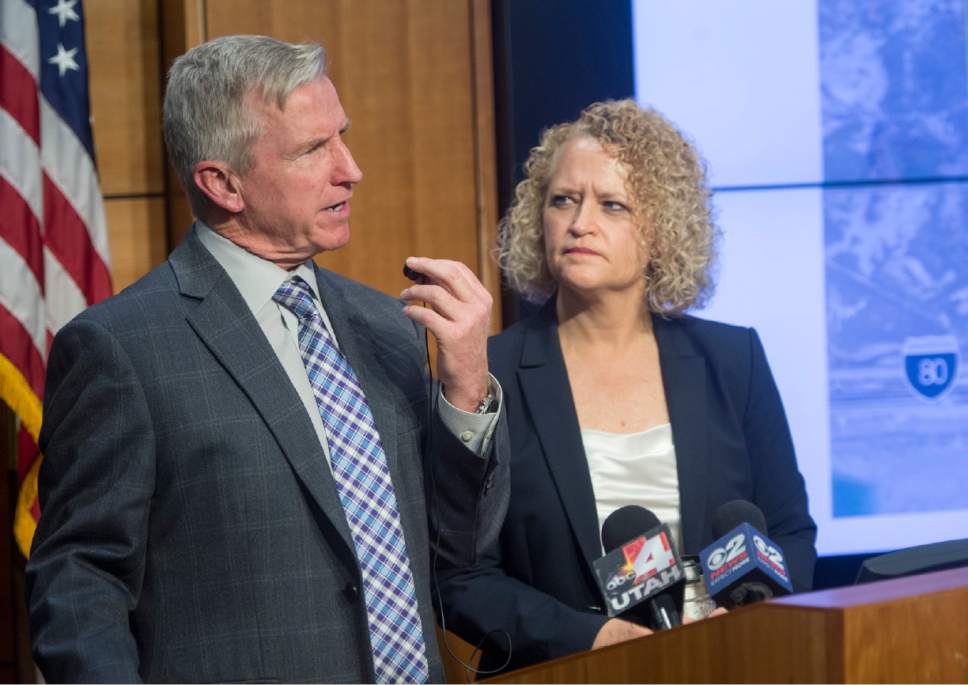This is an archived article that was published on sltrib.com in 2017, and information in the article may be outdated. It is provided only for personal research purposes and may not be reprinted.
Salt Lake City is either the "worst city in the state of Utah" in which to obtain a building permit or "the standard for which all other" city permit offices should strive to be.
Opinions of the city's Building Services division varied wildly in an audit that was commissioned last year by the City Council and presented to council members Tuesday. Some customers were highly satisfied while others found city staff lacking in business acumen, expediency and shared interest in builders' success.
The division has made "much progress" in the past decade, according to auditor Citygate, with use of technology that is "among the best that Citygate has seen" and a new ombudsman who helps project leaders navigate the complicated permitting process.
Its top priority going forward, auditors said, should be to improve customer service.
"Stakeholders," they wrote, "were very candid and clear that some of those who could invest in other communities have done so, some of those who were uncertain about making an investment to upgrade or expand their buildings have not, and some of those who could avoid acquiring a permit have."
Auditors told the City Council on Tuesday that the most useful action would be to solicit customer feedback — possibly through email — and use those answers to measure performance. The city's internal motto should become, they said: "We're here to help you."
Several among 165 customers who took an online survey said the permitting time frame is shorter elsewhere in the state, while city staff can be hard to reach and seem unconcerned with delays until, one respondent said, they perceive that a customer is "angry." Those involved in small-scale operations said a two- to three-month wait was hardest on them: Without other jobs lined up in the interim, they lose customers and employees.
Building Services Director Orion Goff told the council on Tuesday that the survey responses in the appendix show "we're either loved or hated for various reasons." Years such as 2016 — when the city issued 2,200 more permits than in the previous year — bring a "vicious cycle," Goff said: "When we're super busy, they're usually super busy, too."
Department of Community and Neighborhoods Director Mike Reberg said frustrated customers may have a point that there are fewer obstacles to building elsewhere in the state. Salt Lake City is larger, older and more developed than Utah's other municipalities, he said, with a code that has become more complex through the years.
On a business trip to a larger city on the Pacific Coast last year, Reberg said developers told him they generally waited a year and a half to two years for permits. Goff said Salt Lake City's turnaround time is "probably quicker than most."
Both agreed that the city can improve its customer service, and they expressed their gratitude for the information. Reberg said the frustration of some of the surveyed customers — "illiterate and lying idiots," read one review — also speaks to the nature of the division's relationship with its customers.
"This is an agency where we have to tell people 'No' sometimes," he said. "We have to tell people that you did something wrong, that you can't do things to your property that you want to do, and sometimes we tell people that they started something improperly and they have to fix it."
Salt Lake City Council Chairman Stan Penfold said the audit was the result of "several years" of hearing about the delays builders face during the permitting process.
"Part of the challenge was they were always sort of anecdotal stories but it was really hard to pin them down," Penfold said. "What I'm seeing in the report is that there are probably some areas where we could be more efficient."
Council member Derek Kitchen visited the city's "one-stop shop" for services in February and said he's pleased to know that "some of the actions don't really require a lot of resources."
The city already has hired new plans examiners, Reberg said, and created a new queue to help speed the process. A citywide employee training model favored by Mayor Jackie Biskupski will help improve customer service, he said.
Twitter: @matthew_piper





